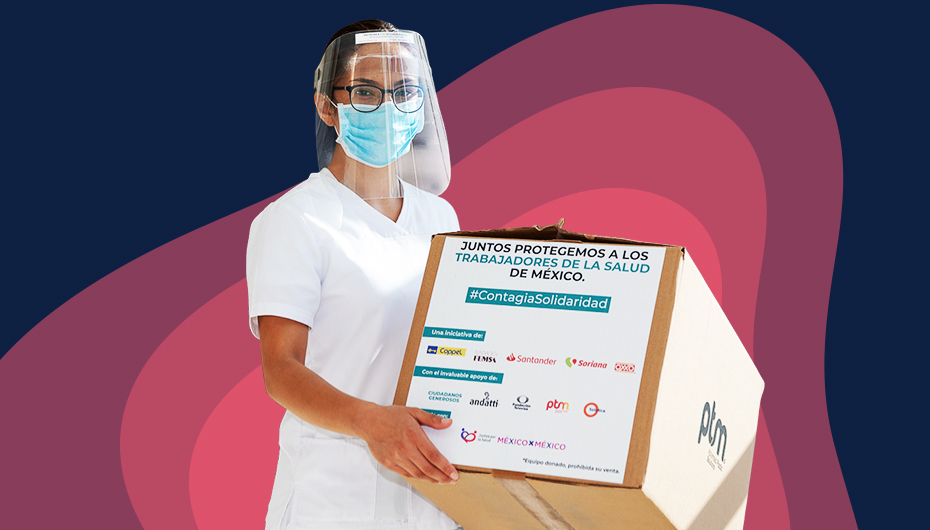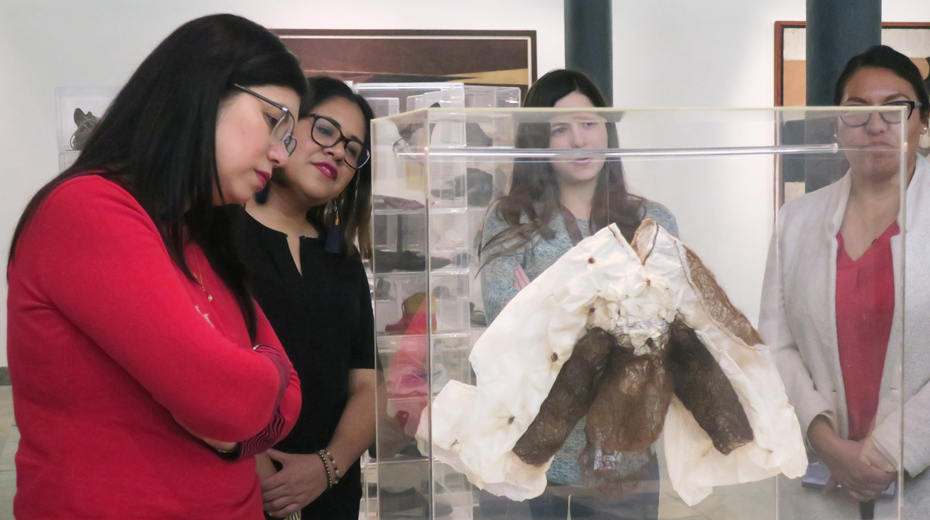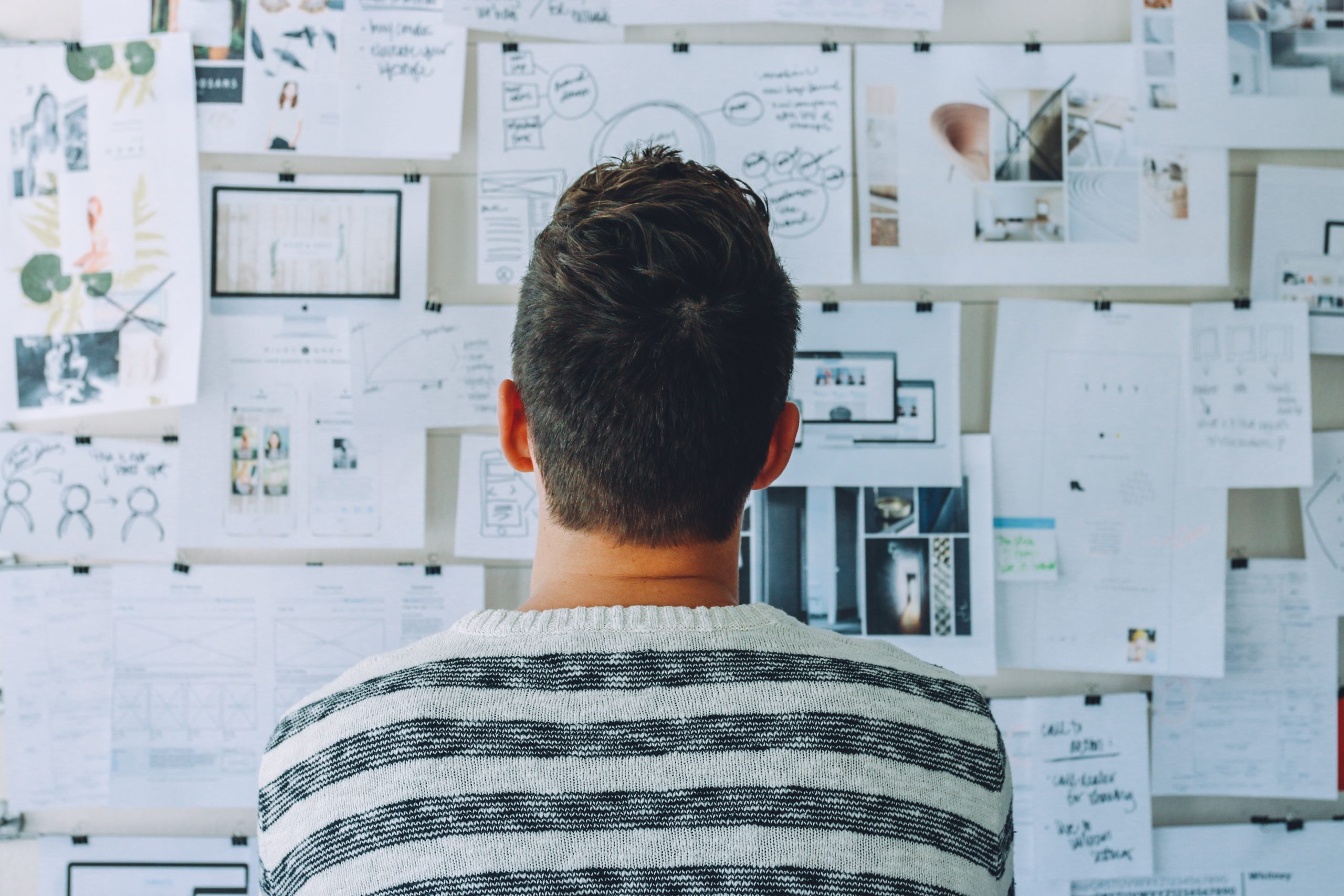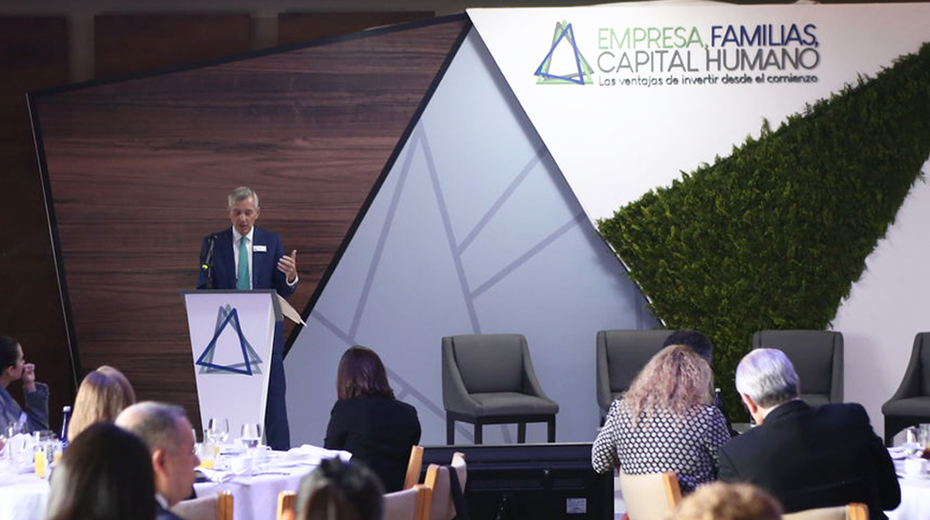At the beginning of 2020, when we thought about what the next twelve months would be like, we never imagined that something like the COVID-19 pandemic awaited us. More than a year later, the world we look back on today is very different from what we knew. This unusual situation put us in a position where we all depend on each other: although not in the same boat, we are all in the same storm.
Crises are often a trigger for action. They make us see that the realities of the world are not always going to meet our expectations. Although some of these critical situations push us to realize that the state of things must change. Sometimes they even show us that change is already happening.
12 years ago, when FEMSA Foundation was born, we were clear about our mission to positively impact people and communities. The best guide to knowing where to pour our efforts was social investment. This year, the surprise that the health sector around the world was overwhelmed by the needs of the pandemic, helped us to recognize our values as an organization.
We saw that it was necessary to quickly respond to the needs of the health sector and of the people whose lives were disproportionately affected by the pandemic. We needed to broaden our focus to meet what Latin America urgently needed. Although this adjustment took us by surprise, we were ready to take action. Of course, there have also been good surprises. In record time, thanks to the scientific community, we have a vaccine against COVID-19 that will allow us to resume our activities as the months progress.
The challenges that surprised us in 2020 also pushed us to act, leading us to expand our field of action to create new opportunities that we share with you today.

Caring for those who take care of us
The pandemic put all the world’s health systems to the test, and Mexico was no exception. Doctors were at the forefront of a race against time, adapting to the fight against an unknown disease, with a high volume of cases and many factors against them. However, the commitment of Mexican doctors remained fir
It was clear to us that “if a problem affects the entire society, its attention and relief is a collective responsibility”, in the words of our director, Lorena Guillé-Laris. This situation showed us how necessary cooperation and decision-making between government, society and private initiative are.
We understood that it was a priority to take care of doctors and all health personnel, including those who were not treating patients with COVID. This is how the Contagia Solidaridad initiative was born, with which, in alliance with other companies and foundations and thanks to the generous donations of thousands of Mexicans, we managed to get 91,000 members of the country’s health personnel in 155 non-COVID hospitals to receive personal protection kits. On the other hand, together with the federal government and more than 600 companies, we provided supplies, drinking water and food services to more than 600 hospitals as a result of joining forces in Juntos por la Salud.

Addressing the other health crisis
As humans, we are going through a critical moment. The health contingency began as a physical health crisis, but little by little it had impressive effects on the mental health of thousands of people. According to the WHO, health is not just being free from disease, but having physical, mental and social well-being. In particular, mental health is an important part of a state of well-being.
The pandemic brought us all high levels of stress, uncertainty, isolation and fear, emotions that only grew during confinement. To respond to this challenge, it became essential to develop an alternative to identify and regulate emotions, which together with AtentaMente and other partners, we brought to parents and educators in the framework of the return to school in mid-2020.
Hand in hand with our partners, we got to work to provide a humanitarian response that was comprehensive and that would contribute to promoting food security, self-care and socio-emotional care of families during the pandemic with an initiative in Guatemala and, on the other side, with a platform with a presence in Mexico, Panama, Costa Rica, Nicaragua and Guatemala.
Young children especially perceived the stress of the adults around them and to this must be added the fact that many of these children already lived in disadvantaged conditions and that 2 out of 3 children in Latin America are disciplined with violence. The emotions that the confinement accentuated have long-term effects on the brain development, the ability to learn and the social-emotional skills of children.
We know that, if we cultivate loving bonds with their parents and caregivers, the positive interactions they have with them will positively influence the development of children. With the JUEGAA emergency intervention, we reached almost 30,000 children from vulnerable communities and their families with a kit full of materials to promote the learning of the youngest at home, contribute to reducing the risk of domestic violence and improve the sensitivity of primary caregivers to their children’s emotions.

Building a bridge towards people in migration situations
We are convinced that art has the potential to transform people and entire communities. This was evident during the pandemic, as it became a link and a platform for dialogue with one of the most vulnerable sectors of society, which are people who migrate.
One of the most difficult problems faced by thousands of migrant and refugee families was having access to adequate food. We needed to find the means to provide food security and socio-emotional support to children who migrate, as well as information on safety and health services for women. We joined forces with the artistic community and with institutions that support migrants in Nuevo León to create the Puerto Abierto initiative. The team of our Cultural Program contributed with their work to reuse wooden boxes that had at some point transported works from the FEMSA Collection. With these boxes, they created urban gardens that allowed families to have fresh vegetables at a very low cost and in a sustainable way.
Through the outdoor photographic exhibition Los otros lados, we narrated their stories, creating meeting points through two things that are at the heart of FEMSA Foundation: art and collective action.
Faced with each challenge that was presented to us in 2020, we responded hand in hand with allies who dedicate their creativity, their resources, and the daily effort to solve these challenges. We look to the future with hope because we believe in the power of collaboration. We must remember that the world improves when we decide to act and that we all have a responsibility to move our communities into the future. Best of all, hope is that driving force that has a multiplying effect: the more we dare to create opportunities for a better future, the more reasons there will be to feel hope.






